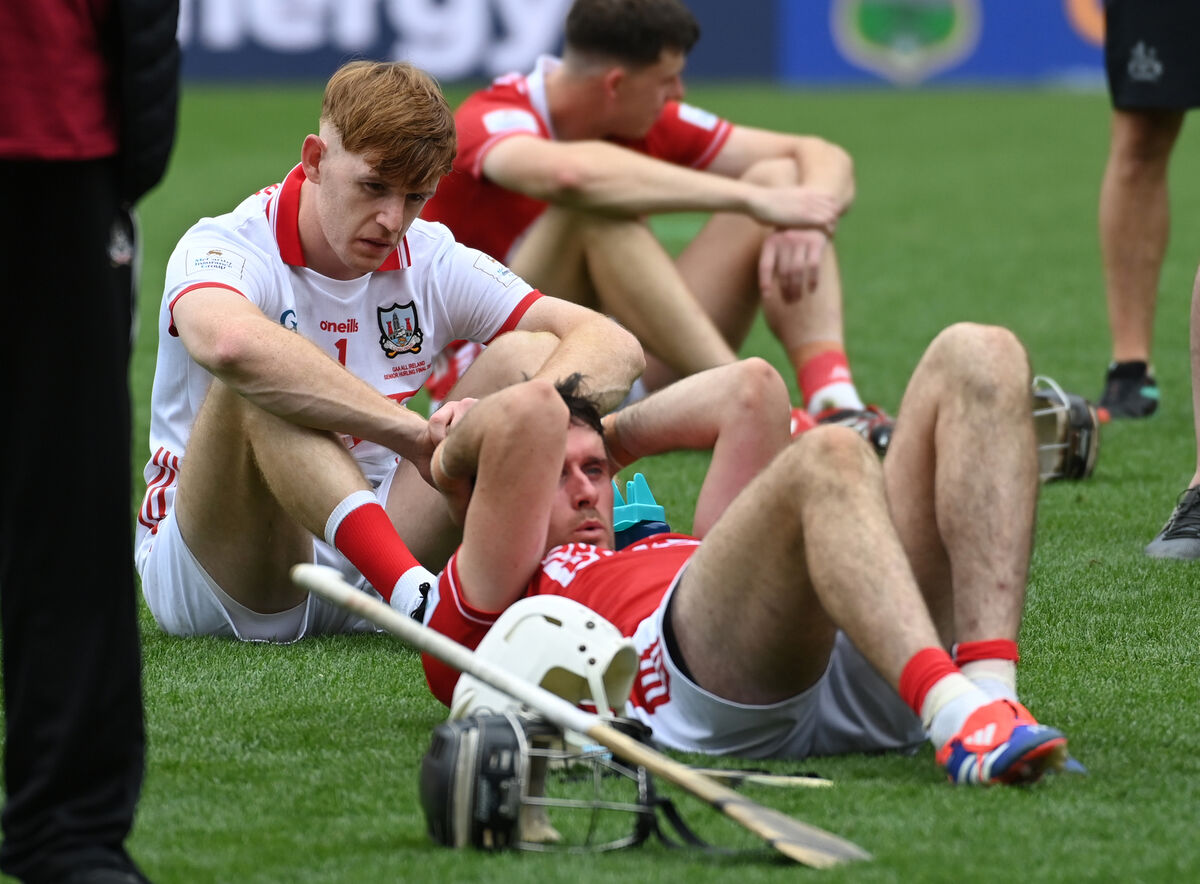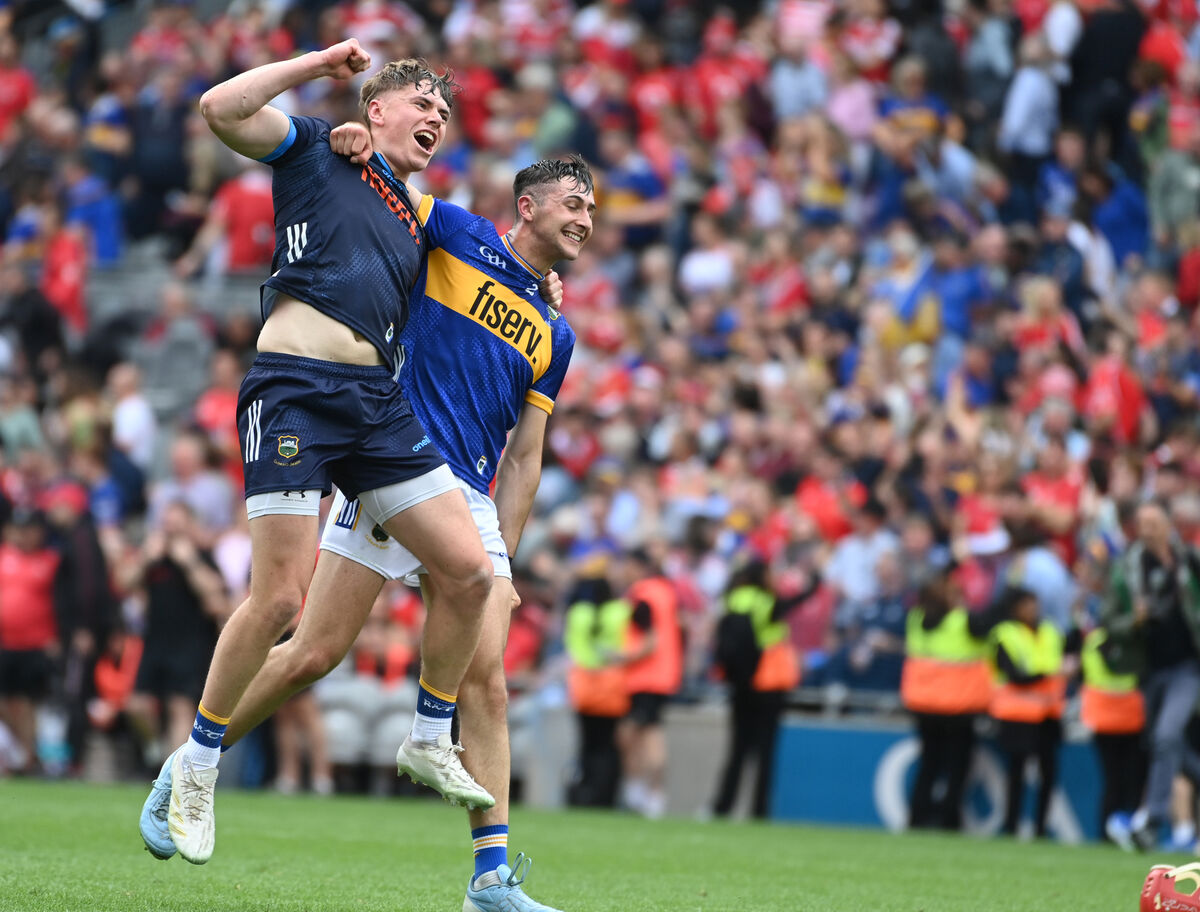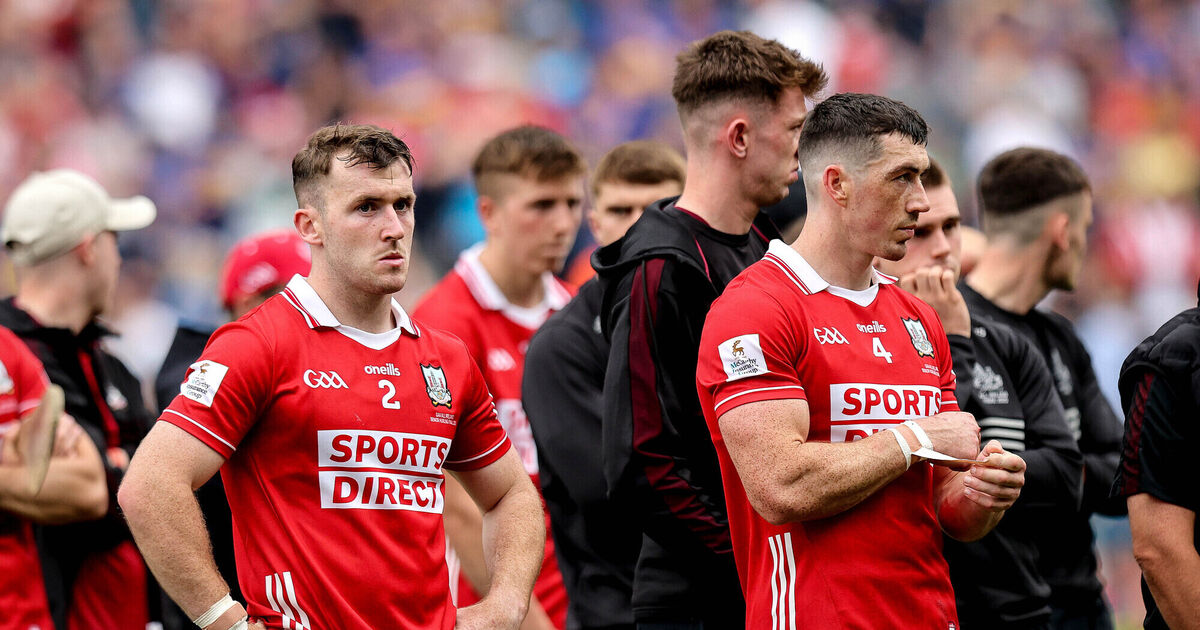Writing an article about the 2025 All-Ireland final was supposed to be fun.
It was supposed to be a celebration. Instead, to abuse the famous George Best quote, we have to declare, ‘where did it all go wrong?’
Cork were destroyed so badly in the second half on Sunday that no analysis is necessary.
 Cork’s Patrick Collins and Tim O’Mahony after the defeat to Tipperary in the All-Ireland SHC final at Croke Park. Picture: Eddie O’Hare
Cork’s Patrick Collins and Tim O’Mahony after the defeat to Tipperary in the All-Ireland SHC final at Croke Park. Picture: Eddie O’Hare
No substitution or switch would have changed the outcome. Cork were beaten in every position and every line of the pitch after half time.
It was a complete and utter car crash. 3-14 to 0-2. Enough said.
Which begs the question, what on Earth happened at half time?
Cork looked to be in the perfect position after Shane Barrett’s injury-time first-half goal left them six up at the break.
One felt that a couple more scores and Tipp would be forced to dispense with their sweeper, which would have left space inside for the likes of Alan Connolly and Brian Hayes to do wreck? It was looking so good.
Instead, we got the poorest performance by the Cork hurlers in a half in living memory.
It was the perfect storm. Cork hitting the post three times and the crossbar once.
Soft goals down the other end. Every 50/50 battle going Tipp’s way. Uncharacteristic Cork errors.
It was nightmare stuff from a Cork perspective, but no amount of pinching was going to awaken us from this horrible dream.
From six points up at half time to game over after 53 minutes. That is the grim reality. None of us has ever seen an All-Ireland final like it.
Even Tipperary fans were asking themselves ‘is this really happening?’
You could sense that every single Tipp player, to a man, was relishing every moment and every contest, whereas the Cork players seemed to shrink.
Sports psychologists are likely to use this game as an extremely interesting case study in the coming years.
There is no escaping the reality that this was a really damaging defeat. It is difficult to see, right now, how this team can recover from the sheer manner of it.
Last year was difficult, losing by a single point after extra time, but this was worse, much worse, as no one had Cork collapsing in this manner on their Bingo Card on Sunday.
To continue the pessimistic theme you have to conclude that the bulk of this Cork team have now contested three All-Ireland finals and the grim reality is that they have not performed to their optimum levels in any of them.
They may have lost the 2024 final by a single point after extra time but after the 20th minute, you always felt they were chasing the game that day.
A few takeaways. The first one is that this Cork team do not do favouritism well.
They have now played two All-Ireland finals as favourites and been outworked, outthought and outfought both times.
Conversely, they played the Munster final with fear in the belly as underdogs, as there was a genuine concern that Limerick could do a number on them again. This fear inspired them to victory.
The other observation is that Cork’s main strength may actually be their main weakness.
To beat the great Limerick side, Cork came up with a solution that involved playing a three-man full forward line to keep the opposition honest, with Cork retaining a goal threat no matter what.
This worked a treat twice last year and also ensured they won the Munster final this year, but in the round robin game, Limerick cut out the supply to Alan Connolly, Brian Hayes and Patrick Horgan high up the pitch and ended up destroying Cork by 16.
The second half on Sunday felt similar. Tipp’s sweeper cleaned up when Cork launched long ball down in that direction and the moment the Cork full-forward line was nullified as a scoring threat, the entire system collapsed.
 Tipperary players Rhys Shelly and Robert Doyle celebrate. Picture: Eddie O’Hare
Tipperary players Rhys Shelly and Robert Doyle celebrate. Picture: Eddie O’Hare
It is all too raw to start thinking about next year, but Cork certainly need to have a Plan B for when Plan A does not work, as currently it seems to be an all-or-nothing approach. Cork are either brilliant or they are subject to a hiding.
No All-Ireland is going to be won when you are that brittle.
Cork did lose the 1982 and 1983 finals and went on to win the 1984 final against Offaly in Thurles.
The footballers lost in 1987 and 1988 to Meath and came back to win in 1989, and the next generation lost the 2007 and 2009 deciders before coming back to win in 2010.
They say you have to lose one to win one. Unfortunately, perhaps Cork needs to lose two to do so.

